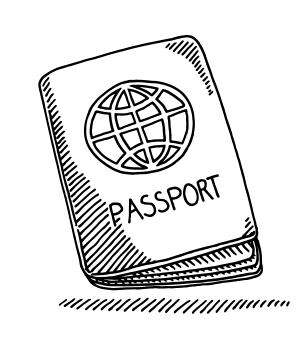A new kind of employment law is emerging as cases grow more complex thanks to the deluge of new employee data on everything from GPS information to email log-ins.
While this is potentially a treasure trove of information that can help businesses to raise their game; cut costs and improve productivity, as well as establish whether workers are being treated fairly and why, it can also be a legal minefield.
Companies have faced a throng of new harassment and discrimination claims following the rise of the #MeToo movement, mandatory gender pay gap disclosure in some nations, and high-profile pay disputes in the gig economy.
Examples include the BBC’s pay dispute with senior presenters over the UK broadcaster’s gender pay gap.
This has raised demand for a new type of data-savvy employment lawyer, one that needs not just a strong grasp of the law and policy, but data analysis skills as cloud computing power has lowered costs.
Law firms are hiring technology specialists in data analysis divisions, as well as lawyers with strong math and computer programming skills to deal with reams of data to answer legal problems more proficiently.
How Employment Law LL.M.s are responding to new legal needs
Orly Lobel, at University of San Diego’s School of Law, heads the LL.M. program in Employment and Labor Law, which has responded to this new type of data-intensive work.
“I teach my students about the new reforms around detecting disparate impact and discrimination, and how attorneys must understand and lead the battle of statistics experts,” she says.
This includes a course called employment law and technology that looks at analyzing the costs, risks and potential compliance issues with hiring through apps and data-driven decision making.
“We discuss algorithmic justice and the potential promises and failures of introducing artificial intelligence to replace human decision making in employment processes,” Lobel says.
[See all LL.M. programs in Employment Law / Labor Law / Social Security Law]
It is one of a number of law school programs specializing in employment law that are being refreshed for the digital age. Many top schools run Employment Law LL.M.s, including ESADE in Spain and Cardiff in the UK; while NYU Law has the Center for Labor and Employment Law.
“On our course, we explore the latest legal cases dealing with social media in the workplace from a number of different angles - privacy, human rights, unfair dismissal, discrimination,” says Lisa Rodgers, director of the LL.M. Employment Law course at the UK’s University of Leicester.
This is because of the growing demand from employers, with the increase in employee data the source of far more employment disputes than in the past. Law firms like Littler Mendelson are also using data sets to help them win employment cases, for instance to establish liability in disputes, or help companies work out if they are paying workers fairly.
Companies including Walmart, Nike and Google have fought against their employees in cases recently, some related to claims for missed breaks or unpaid wages.
“The range of mechanisms of collecting data has expanded exponentially and so companies are using these,” says Rodgers.
Lobel agrees, saying employment lawyers have always been in-demand but are increasingly so. “Companies are lending their data services and software to employers to mine through salaries and ensure compliance,” she adds.
“Other companies serve to analyze data for class action litigation, such as with unlawful noncompete clauses.”
She highlights the gig economy as one notable frontier in employment battles, with lawyers trying to answer the question of whether workers are classified as employees or independent contractors.
“California recently passed AB5, which makes it easier for workers and agencies to claim misclassification of their status if they’ve been hired as freelancers. Uber, Lyft and other digital platforms are currently battling these reforms and other states are considering emulating them,” Lobel says.
Other issues on the rise including the surge in sexual harassment and discrimination claims following the #MeToo phenomenon, and gender wage gap legislation. “Employment attorneys help not only with litigation, but with investigation, training, setting up grievance procedures and compliance practices,” says Lobel.
What makes a great employment lawyer?
The hallmark of a great employment lawyer is a thorough understanding of the economics of the labor market, the psychology of the employment relationship, the individualized business models of the industry they represent, and the dynamic and ever-changing goals of the law.
“A great employment lawyer has the legal knowledge of course, but to me it’s about how you transfer that knowledge and can home in on the key points,” says Rodgers. “A great employment lawyer must also be able to speak to a range of audiences whilst still being approachable and willing to learn.”
With a range of messy battles on the horizon and growing disputes in the areas of whistleblowing, religious discrimination and maternity and paternity rights, the demand for digital-savvy employment lawyers looks likely to remain high. Law schools may need more courses like Rodger’s and Lobel’s.










